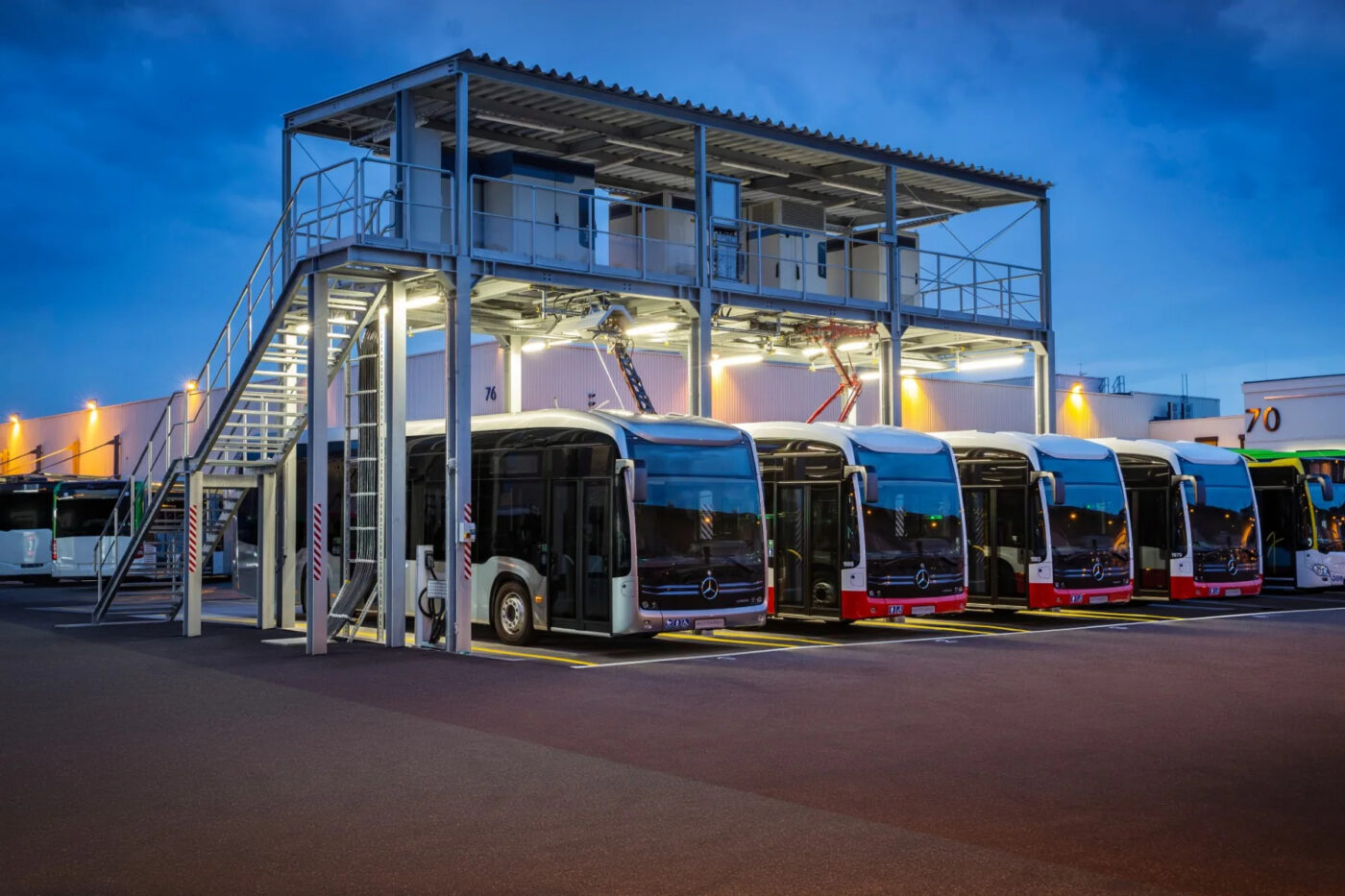Daimler Buses adds eCitaro range
In spring, Daimler Buses publicised that the new battery generation for the eCitaro is in the works – but so far without providing any performance data. The manufacturer has now stated for the first time that the ‘NMC4’ battery generation will offer a six per cent higher energy density compared to the current battery (‘NMC3’) thanks to a new cell chemistry. “It enables a higher storage capacity within the same installation space,” the company writes. The battery-electric eCitaro should therefore be able to travel 500 kilometres, the eCitaro fuel cell even up to 700 kilometres. The current figures are 320 kilometres and 400 kilometres respectively.
In addition to a high energy density, the new batteries should also be very durable. Daimler Buses wants to give its customers an optional guarantee on the service life of the batteries of up to 12 years. In terms of cell chemistry, nickel-manganese-cobalt will be retained, although the dosage of the individual battery ingredients is likely to change. Daimler Buses will not be more precise at this point. One thing is clear: the new batteries will be assembled by BMZ Poland, the Gliwice-based subsidiary of BMZ Holding from Karlstein am Main. Daimler Buses is thus saying goodbye to Akasol. The bus manufacturer had previously entrusted battery assembly to the German battery system manufacturer, which was acquired by the US group BorgWarner in 2021.
The NMC3 packs are currently coming off the production line at Akasol in Hesse. However, from ‘the middle of the decade’ – according to the original quote in spring – the batteries will then come from Poland. The BMZ subsidiary there was founded in 2010 and is in the process of expanding its production at the Gliwice site as part of the new strategic cooperation with Daimler Buses.
Daimler Buses introduced the current NMC3 battery in September 2022. It is based on cylindrical cells of the 21700 format (21 mm diameter, 70 mm length) with nickel-manganese-cobalt chemistry, whereby 600 cells fit into one battery module and nine modules are assembled into a pack. The energy content at the pack level: 98 kWh. Up to six packs (ergo: 588 kWh) can be installed in the twelve metre-long eCitaro solo bus, and up to seven packs (686 kWh) in the 18 metre-long articulated bus version. Akasol states that the battery has a service life of up to 4,000 charging cycles.
It will probably be a while before Daimler Buses reveals the equivalent data for the new battery generation. However, the first order for buses with the new NMC4 batteries has already been publicised: Autoservizi Troiani, operator of a route network in the eastern suburbs of Rome, has ordered 110 Mercedes-Benz eCitaro buses – including 45 with the new batteries on board.
At the same time, Daimler Buses is also announcing an innovation for the eCitaro fuel cell, which is equipped with a fuel cell as a range extender in addition to its batteries. Until now, the model could not rely exclusively on hydrogen as a fuel. This is now changing: thanks to a new operating mode, the fuel cell can take over the complete charging of the battery with hydrogen.
The battery and the fuel cell together remain the energy source for the drive, but the stop at the charging station can be delayed for longer. “This means that the eCitaro fuel cell can meet the requirements of transport operators who prefer to use green hydrogen instead of mains electricity as an energy source,” the manufacturer writes.





0 Comments